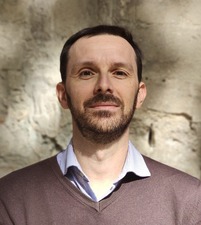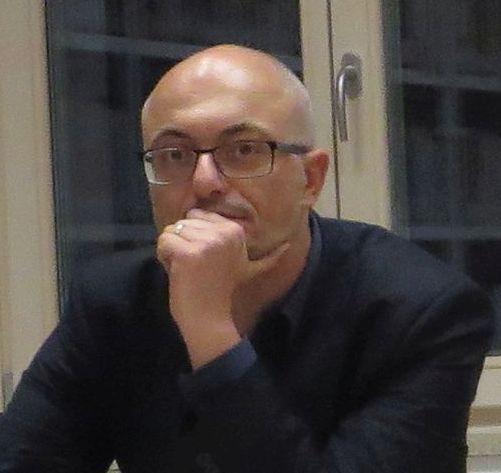Studying at the University of Verona
Here you can find information on the organisational aspects of the Programme, lecture timetables, learning activities and useful contact details for your time at the University, from enrolment to graduation.
Academic calendar
The academic calendar shows the deadlines and scheduled events that are relevant to students, teaching and technical-administrative staff of the University. Public holidays and University closures are also indicated. The academic year normally begins on 1 October each year and ends on 30 September of the following year.
Course calendar
The Academic Calendar sets out the degree programme lecture and exam timetables, as well as the relevant university closure dates..
| Period | From | To |
|---|---|---|
| 1° semestre lezioni Trento | Sep 18, 2023 | Dec 21, 2023 |
| CuCi 1 A | Sep 25, 2023 | Nov 4, 2023 |
| CuCi 1 B | Nov 13, 2023 | Dec 22, 2023 |
| CuCi 2 A | Feb 19, 2024 | Mar 29, 2024 |
| 2° semestre lezioni Trento | Feb 19, 2024 | May 31, 2024 |
| CuCi 2 B | Apr 9, 2024 | May 31, 2024 |
| Session | From | To |
|---|---|---|
| Sessione invernale | Jan 8, 2024 | Feb 17, 2024 |
| Sessione estiva | Jun 3, 2024 | Jul 26, 2024 |
| Sessione autunnale | Aug 26, 2024 | Sep 21, 2024 |
| Session | From | To |
|---|---|---|
| Sessione straordinaria (a.a. 2022/23) | Apr 2, 2024 | Apr 8, 2024 |
| Sessione estiva | Jul 8, 2024 | Jul 13, 2024 |
| Sessione autunnale | Nov 4, 2024 | Nov 9, 2024 |
| Period | From | To |
|---|---|---|
| Festa di Ognissanti | Nov 1, 2023 | Nov 1, 2023 |
| Festa dell'Immacolata | Dec 8, 2023 | Dec 8, 2023 |
| Vacanze di Natale | Dec 24, 2023 | Jan 7, 2024 |
| Vacanze di Pasqua | Mar 29, 2024 | Apr 1, 2024 |
| Festa della Liberazione | Apr 25, 2024 | Apr 25, 2024 |
| Festa del Lavoro | May 1, 2024 | May 1, 2024 |
| Festa del Santo Patrono | May 21, 2024 | May 21, 2024 |
| Vacanze estive | Aug 12, 2024 | Aug 17, 2024 |
Exam calendar
Exam dates and rounds are managed by the relevant Culture and Civilisation Teaching and Student Services Unit.
To view all the exam sessions available, please use the Exam dashboard on ESSE3.
If you forgot your login details or have problems logging in, please contact the relevant IT HelpDesk, or check the login details recovery web page.
Should you have any doubts or questions, please check the Enrollment FAQs
Academic staff
 giovanni.bernardini@univr.it
giovanni.bernardini@univr.it
 giovanni.ciappelli@univr.it
giovanni.ciappelli@univr.it
 giorgia.proietti@unitn.it
giorgia.proietti@unitn.it
Study Plan
The Study Plan includes all modules, teaching and learning activities that each student will need to undertake during their time at the University.
Please select your Study Plan based on your enrollment year.
1° Year
| Modules | Credits | TAF | SSD |
|---|
Contemporary History I - LM
History of Science and Technology - LM
Medieval History, History of Christianity and Churches
Early Modern History I - LM (Historical Anthropology)
History of Political Thought
History of Medieval Art (m)
Medieval Latin Literature II
Digital tools for historical research
2° Year It will be activated in the A.Y. 2024/2025
| Modules | Credits | TAF | SSD |
|---|
| Modules | Credits | TAF | SSD |
|---|
Contemporary History I - LM
History of Science and Technology - LM
Medieval History, History of Christianity and Churches
Early Modern History I - LM (Historical Anthropology)
History of Political Thought
History of Medieval Art (m)
Medieval Latin Literature II
Digital tools for historical research
| Modules | Credits | TAF | SSD |
|---|
| Modules | Credits | TAF | SSD |
|---|
Legend | Type of training activity (TTA)
TAF (Type of Educational Activity) All courses and activities are classified into different types of educational activities, indicated by a letter.
Type D and Type F activities
SOFT SKILLS
Find out more about the Soft Skills courses for Univr students provided by the University's Teaching and Learning Centre: https://talc.univr.it/it/competenze-trasversali
CONTAMINATION LAB
The Contamination Lab Verona (CLab Verona) is an experiential course with modules on innovation and enterprise culture that offers the opportunity to work in teams with students from all areas to solve challenges set by companies and organisations.
Upon completion of a CLab, students will be entitled to receive 6 CFU (D- or F-type credits).
Find out more: https://www.univr.it/clabverona
PLEASE NOTE: In order to be admitted to any teaching activities, including those of your choice, you must be enrolled in the academic year in which the activities in question are offered. Students who are about to graduate in the December and April sessions are therefore advised NOT to undertake extracurricular activities in the new academic year in which they are not enrolled, as these graduation sessions are valid for students enrolled in the previous academic year. Therefore, students who undertake an activity in an academic year in which they are not enrolled will not be granted CFU credits.
| years | Modules | TAF | Teacher |
|---|---|---|---|
| 1° 2° | One hundred years after the reconstruction of the ciborium of San Giorgio (1923-2023). New studies on the parish church | D |
Fabio Coden
(Coordinator)
|
| years | Modules | TAF | Teacher |
|---|---|---|---|
| 1° 2° | Art, memory and terrorism: the duty to protect our cultural heritage | D |
Olivia Guaraldo
(Coordinator)
|
| 1° 2° | The worlds of Italo Calvino | D |
Giuseppe Sandrini
(Coordinator)
|
| years | Modules | TAF | Teacher |
|---|---|---|---|
| 1° 2° | Native-american glottology. Classes and seminars | D |
Alfredo Rizza
(Coordinator)
|
| years | Modules | TAF | Teacher |
|---|---|---|---|
| 1° 2° | Native-american glottology. Classes and seminars | D |
Alfredo Rizza
(Coordinator)
|
History of Political Institutions II (2023/2024)
Teaching code
4S001212
Teacher
Coordinator
Credits
6
Language
Italian
Scientific Disciplinary Sector (SSD)
SPS/03 - HISTORY OF POLITICAL INSTITUTIONS
Period
1° semestre lezioni Trento dal Sep 18, 2023 al Dec 21, 2023.
Courses Single
Not Authorized
Learning objectives
Acquisition of an adequate skill as well as historical-methodological, historical-factual and historical- conceptual competences, for a comparative and interdisciplinary understanding (history, law, political science) of the main innovations introduced by the modern Constitutions of the Nineteenth and Twentieth centuries.
Prerequisites and basic notions
No basic knowledge and/or skill is assumed as already be acquired by the student.
Program
In the course, entitled The constitutional dualism between Parliament and Government in the constitutional monarchy of the Kingdom of Italy (1848-1922), will be dealt with the period between 1848 and 1922 from the point of view of the political-constitutional history. The period of time taken into account goes from the establishment in Piedmont 1848 of the modern representative system , which was extended 1861 to the entire newly established Kingdom of Italy, until to the rise to power of fascism. The attention will be focused on the two main institutions of the political system of the Italian constitutional monarchy, namely Parliament and (monarchical) Government, as well as on their relationships in the political history of the Italian constitutional monarchy during the liberal age.
1. Starting from the pre-constitutional period the transition of the italian peninsula from the Napoleonic period to the Restoration era up to 1848 will be illustrated .
2. Then it will be analyzed the transition 1848 of the Sardinian Kingdom to a constitutional state through the adoption of the Albertine Statute.
3. It will be analyzed the two-chamber political system erected in the Kingdom of Sardinia on the basis of the Albertino Statute; the new representative system was based on a Chamber of elected Representatives and on a Senate appointed by the King.
4. By describing the new role assumed by the King in the new (monarchical-)constitutional system, the new institutions of the Executive, ie the Council of Ministers (Cabinet) and the President of the Council (Premier) , which both aimed to limite the power of the monarch. will be also highlighted.
5. Then will be followed the events of the new representative and executive institutions within the Kingdom of Italy, as well as the changes and transformations to which they went.The course will be developped through frontal lessons. It will be also used official sources such as laws, ordinances, parliamentary acts. The student may submit to the attention of the teacher his critical reflections on the subject of the lessons.
It is strongly recommended frequency.
Bibliography
Didactic methods
The course will be developped through frontal lessons. It will be also used official sources such as laws, ordinances, parliamentary acts. The student may submit to the attention of the teacher his critical reflections on the subject of the lessons.
It is strongly recommended frequency.
Learning assessment procedures
Verification of learning will take place for the attending students through an oral exam upon the text of R. Martucci indicated in the n.1 of the bibliography and the essay of A. G. Manca indicated at the n. 2 of the bibliography.
For not attending students, verification of learning will consist of an oral exam on Martucci's and Manca texts and also on two more texts, ie the two suggested by the numbers 3) and 4) of
Bibliography.
1) - Martucci, Roberto, Storia costituzionale italiana. Dallo Statuto albertino alla Repubblica (1848-2001), Roma, Carocci, 2002, until p. 197;
2) Manca, A. G., "Lo Statuto albertino nel panorama del costituzionalismo ottocentesco" in ANNALI DELLA FONDAZIONE UGO SPIRITO, n.s., v. XXXIV - 2022, n. 2 (2023), p. 13-40.
3) Luigi Musella, Il trasformismo, Bologna , Il Mulino, 2003, until p. 97.
4) Daniela Novarese, Le istituzioni politiche della Restaurazione, in Marco Meriggi – Leonida Tedoldi (a cura di), Storia delle istituzioni politiche. Dall’antico regime all’era globale, Roma, Carocci, 2014, pp. 103-127;
Evaluation criteria
The course aims to acquire knowledge on origins, structure, working and change of modern apical political institutions (Parliament and Government) of the Italian political system during the so-called long nineteenth century (until 1914 - 1922); the student will thus have the opportunity to reflect upon the continuities and / or discontinuities of the Italian constitutional history.
At the end of the classes the student will be able to:
1. to know how it happened in our peninsula, and even before in the Kingdom of Sardinia, the transition from an absolute form of government to a constitutional one, and to measure the distance that there is between our present political system and the monarchical-constitutional one;
2. to acquire a deep knowledge of the letter but above all of the implementation of the Albertine Statute, whose determinations were at the basis of the constitutional (monarchical-) form of government, as it was introduced in our peninsula, and to touch what was under some respects very far away from our present political system and very close to her under other ones;
3. to roughly reconstruct the complex and changeable relationship that existed during the (monarchical-) constitutional era between Parliament and (monarchical) Government;
4. to penetrate the concrete working of the bicameral representative system of the Kingdom of Sardinia first and then of the Kingdom of Italy and to understand on this basis the close nexus existing in modern times and in general between the electoral system and the political one, being the first the angular stone of the second;
5. to frame the role, often underestimated by post-war historiography, carried out by the Monarch in the regulation of the political system.
Criteria for the composition of the final grade
knowledge of the program and critical ability
Exam language
italiana
Career prospects
Module/Programme news
News for students
There you will find information, resources and services useful during your time at the University (Student’s exam record, your study plan on ESSE3, Distance Learning courses, university email account, office forms, administrative procedures, etc.). You can log into MyUnivr with your GIA login details: only in this way will you be able to receive notification of all the notices from your teachers and your secretariat via email and soon also via the Univr app.
Linguistic training CLA
Double degree
The University of Verona, through a network of agreements with foreign universities, offers international courses that enable students to gain a Double/Joint degree at the time of graduation. Indeed, students enrolled in a Double/Joint degree programme will be able to obtain both the degree of the University of Verona and the degree issued by the Partner University abroad - where they are expected to attend part of the programme -, in the time it normally takes to gain a common Master’s degree. The institutions concerned shall ensure that both degrees are recognised in the two countries.
Places on these programmes are limited, and admissions and any applicable grants are subject to applicants being selected in a specific Call for applications.
The latest Call for applications for Double/Joint Degrees at the University of Verona is available now!
Graduation
List of theses and work experience proposals
| theses proposals | Research area |
|---|---|
| Ambiti di tesi | Art & Architecture - Art & Architecture |
Student mentoring
Student login and resources
Manifesto degli studi
Manifesto degli studi del CdLM interateneo in Scienze storiche
Documents
| Title | Info File |
|---|---|
|
|
pdf, it, 466 KB, 26/02/24 |
|
|
pdf, it, 456 KB, 26/02/24 |

 +39 045802 8351
+39 045802 8351



























